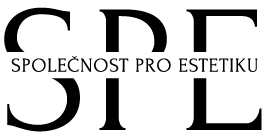MAY 6, 2021, 6:00 pm, zoom
Hanne Appelqvist (Helsinki University, Finland)
Art’s Part in Wittgenstein’s Philosophy
Many philosophers, especially those representing the analytic mainstream, tend to read Wittgenstein’s remarks on aesthetics and the arts as his personal musings or aphorisms disconnected from his more “serious” philosophy. There are several reasons for such a
perception. The way in which Wittgenstein’s Nachlass has been made available to readers effectively isolates his remarks on aesthetics from their original context of broader philosophical discussions. Moreover, the analytic tradition itself typically treats aesthetics as a minor subfield of philosophy, not relevantly related to such core fields as metaphysics, epistemology, or logic. Hence, if viewed from the analytic perspective, the intermittent and seemingly unmotivated way in which aesthetics surfaces in Wittgenstein’s work may seem quite erratic. However, if placed in the context of the Kantian tradition, Wittgenstein’s approach becomes quite understandable. Such a reading, which has recently gained more momentum, serves to show that for Wittgenstein aesthetics has a pride of place in the philosophical quest for the limits of our experience. Or so I will argue.
MAY 13, 2021, 6:00 pm, zoom
Iris Vidmar Jovanović (Rijeka University, Croatia)
Dangers of Art: Plato’s Call to Censorship in Contemporary Aesthetics
Over the last few years, several prominent philosophers of art have written extensively on the ‘ethics of engagement’ with art (Plantinga). Some have considered the possibility of sanctioning the artists for the immoral dimension of their works or of their deeds in creating
the works (Nannicelli), while others have defended the art’s autonomy and insisted on separating it from their creators (Harold). All the while, the artists themselves keep offering us new challenges regarding the ethical evaluation and criticism of their creations. Whether it is their character or that of their work that is morally contentious, or both, it seems that
Plato’s worries regarding the capacity of art to morally corrupt us have never been more plausible. My aim in this talk is to examine some of the current proposals regarding the ethical criticism of art. I will argue that to face Plato’s challenges, we need to understand better the imaginative, affective, and cognitive dimension of our art experiences. My proposal is to approach the challenge of the ethical criticism of art from an informed
perspective, one which takes into consideration the context of art-creation and what exactly goes on in our minds and bodies as we engage with an artwork.
MAY 20, 2021, 6:00 pm, zoom
Isidora Stojanović (Institut Jean-Nicod, Paris, France)
Some reflections on valence in aesthetic judgments
Adjectives such as ‘harrowing’, ‘disturbing’, ‘terrifying’ and ‘shocking’ have a negative valence, at least looking from a lexical point of view; they express emotions and experiences that are considered to be negative. Nevertheless, when used to assess works of aesthetics (in particular, in literature, film, and theatre), they typically express positive evaluations. In
this talk, I will explore several mechanisms in which negatively valenced terms can give expression to positive evaluations, and discuss the implications for the semantics and pragmatics of aesthetic discourse.
MAY 27, 2021, 6 pm, zoom
Elisabeth Schellekens (Uppsala University, Sweden)
Art and Knowledge: The Cognitive Yield of Aesthetic Experience
The debate between aesthetic cognitivists and anti-cognitivists concerns whether we can learn from engaging aesthetically with art and, if so, what kind of knowledge or understanding we can acquire in this way. Despite their many differences, most cognitivists
and anti-cognitivists agree that the epistemic gain we seem to make from artistic experience often resists clear-cut formulation, and sometimes even loses most of its significance in isolation from that experience. In Gregory Currie’s Imagining and Knowing (OUP 2020) for example, we are warned against the underlying cognitivist assumption that literature educates us in ways that are “too subtle, too pervasive” to be measured against our usual epistemic standards. In this paper, I argue for an alternative way of casting the original problem. I argue against two accounts of the relation between aesthetic value and cognitive value in art, what I call the ‘autonomy model’ and the ‘enabler model’, and suggest another explanation grounded in a revision of our concept of aesthetic value. On my view, aesthetic experience can itself be cognitively yielding in so far as the epistemic gain can be seen as part of the work’s distinctly aesthetic value. Experiencing the aesthetic value of artwork can then be a form of understanding in itself. I distinguish between a cumulative and a subtractive account of aesthetic knowledge and highlight the advantages of the former.
Link for all lectures: https://cuni-cz.zoom.us/j/98820532668?pwd=VzhoUFYvSTA3Si9vYUZBMVk4eWlUdz09
Prague Aesthetics Lectures is a guest lecture series organized by the Department of Aesthetics at
Charles University in Prague and the Czech Society for Aesthetics. The aim of the series is to present
promising avenues of research shaping current philosophical aesthetics. In 2020/2021, the series is a
part of the European Aesthetics in the 21st Century project.
